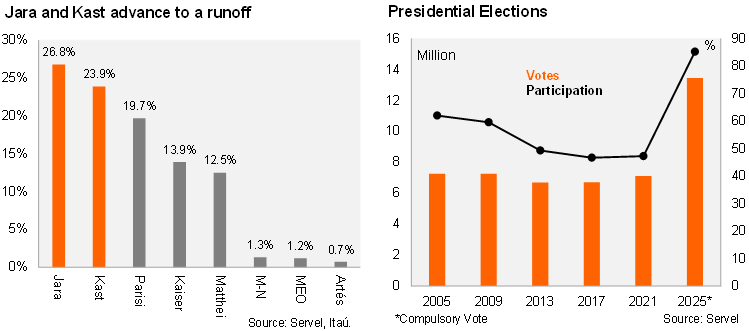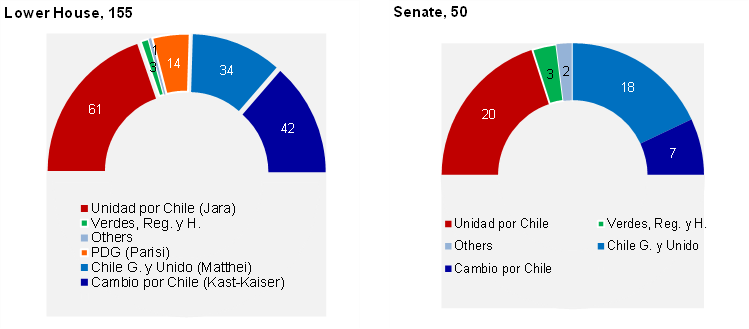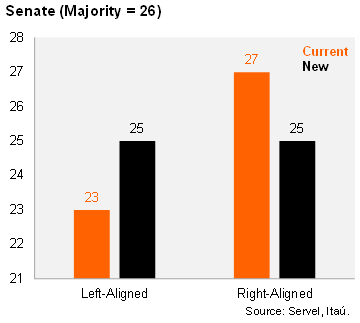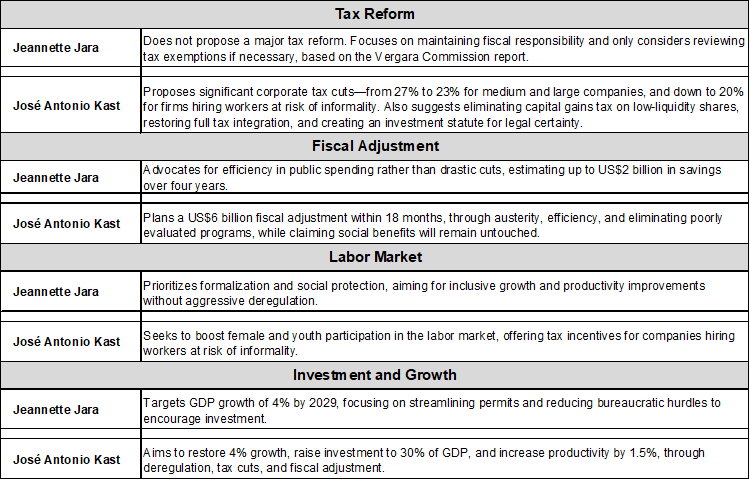2025/11/17 | Andrés Pérez M., Vittorio Peretti, Andrea Tellechea & Ignacio Martínez
A fragmented presidential field of eight candidates culminated with the ruling coalition’s candidate Jeannette Jara and right‑wing José Antonio Kast advancing to the December 14 runoff, as expected.
Jeannette Jara underwhelmed at 26.8%, below several polls and the approval of Boric’s administration. José Antonio Kast outperformed relative to polls at 23.9% yet was below the 27.9% of the first-round presidential election in 2021. Franco Parisi unexpectedly surged to the third spot with 19.7% (up from 13% in 2021), well above polls, maintaining support in the northern regions of the country. Parisi avoided endorsing neither Jara nor Kast. Johannes Kaiser, from the National Libertarian party, achieved 13.9%, while the center-right candidate Evelyn Matthei underwhelmed with 12.5% (broadly in line with the performance of Sebastian Sichel in 2021). Both Kaiser and Matthei swiftly endorsed Kast. Polls have consistently shown that Jara would lose to Kast in a second-round vote. The second-round rhetoric will likely focus on measures to address security, economic growth and jobs. The first compulsory presidential vote saw a participation rate of 85.3%, with 13.5 million votes (up from 7.1 million in 2021).
Polls will be made available publicly again, with the blackout beginning on December 1. President Boric ends his term on March 11, 2026.
While the presidential race garners the most attention, the composition of Congress is crucial in shaping the next political cycle. The right maintained a sizable share in both houses but did not reach a majority. The two coalitions representing the right obtained a combined 25 spots in the 50-seat Senate, down from its current showing of 27. The governing coalition totaled 20 seats, with the Greens in at 3 seats. Left-leaning independents make up the remaining spots. The 155 seat Lower House saw the political right rising from 73 to 76 spots. The governing coalition dropped from 74 to 61 seats. Greens hold 3 seats. The other significant player is Parisi’s PDG party with 14 seats. With no coalition fully in control of Congress, governing will require negotiation across the political spectrum. To advance constitutional changes a 4/7 majority is required (89 in the House; 29 in the Senate).




